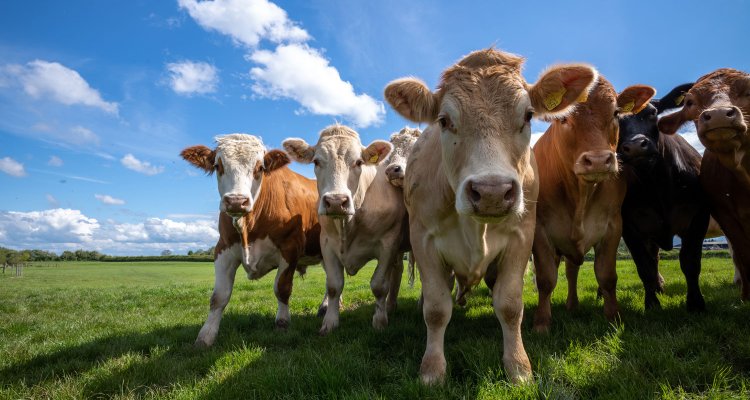
News
5 million grant for breeding efforts to reduce methane
Prof. Roel Veerkamp of Wageningen University & Research is going to lead a global program to coordinate and accelerate the worldwide efforts to breed cattle with reduced methane output. This program has been made possible by a 5 million dollar grant of the Bezos Earth Fund in collaboration with the Global Methane Hub and with the support of University Fund Wageningen.
With this grant Veerkamp aims to bring together the many efforts in different countries to breed next-generation low-methane cattle. ‘We will coordinate and initiate a global effort to specifically select cows with low methane emissions’, says Veerkamp. ‘By standardizing protocols, sharing methane and genotype data, and expanding data recording in different breeds and regions. The aim is to accelerate the impact that animal breeding will have on the reduction of methane alongside traditional breeding goals like milk quality, health and weight’.
Methane
The level of methane a cow produces depends on factors like diet, and its surroundings, but also the contribution that genetics of the cow makes has become very clear over the past few years. Veerkamp: ‘We can turn to nature to reduce methane emissions and use genetic diversity to reduce the impact of livestock on the environment. Identifying animals with genetic predisposition for lower methane output and using them to breed for the next generations, is a reliable, cost-effective, accumulative, and permanent method for transforming livestock impact on the environment. To do this effectively a concerted action is needed.’
About forty percent of the world’s methane emissions come from agriculture, and seventy percent of that is due to enteric fermentation. This process happens in cows’ digestive systems when sugars are broken down into methane and released through belching. Unfortunately, current research on enteric fermentation is not extensive or coordinated enough to provide efficient and transformative solutions to significantly benefit farmers.
Prevent global warming
This innovative project by Wageningen University & Research is part of the program of the Global Methane Hub, a philanthropic fund to support methane mitigation and prevent global warming. With support of the fund, scientists all over the world can work on exploring new and alternate livestock feed additives, immunological studies for a methane vaccine, understanding the organisms in the rumen and their functions, and lowering the costs of measurement, essential to generate evidence for regulatory approval and validation of mitigation technologies.
‘Breeding has the capacity to achieve permanent reductions in emissions from ruminants, whilst allowing farmers to earn an income and produce nutrient-rich food vital to populations in both the global North and South’, says Veerkamp. ‘We are proud and excited to have this role of helping and coordinating the many scientists and breeders across the globe who are taking up this challenge’.
Next generation low-methane cattle
‘Given cattle account for the largest share of agricultural methane emissions, low-methane cattle breeding is a low-cost technological solution with outsized global impact’, says Dr. Andy Jarvis, Director of Future of Food at the Bezos Earth Fund. ‘We are thrilled to partner with Wageningen University & Research to catalyze a global initiative for next-generation low-methane cattle, majorly reducing livestock emissions plaguing our current food system’.
The largest-ever globally coordinated funding investment in livestock methane mitigation research was announced at the United Nations Climate Change Conference (COP28). The public, private and philanthropic partnership includes Bezos Earth Fund, Quadrature Climate Fund, Gerstner Philanthropies, High Tide Foundation, Bill & Melinda Gates Foundation, The Zegar Family Foundation and Danone.